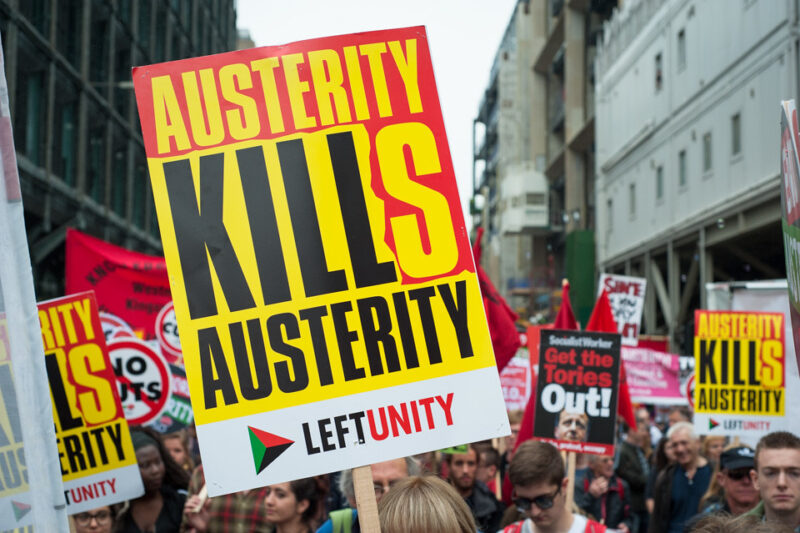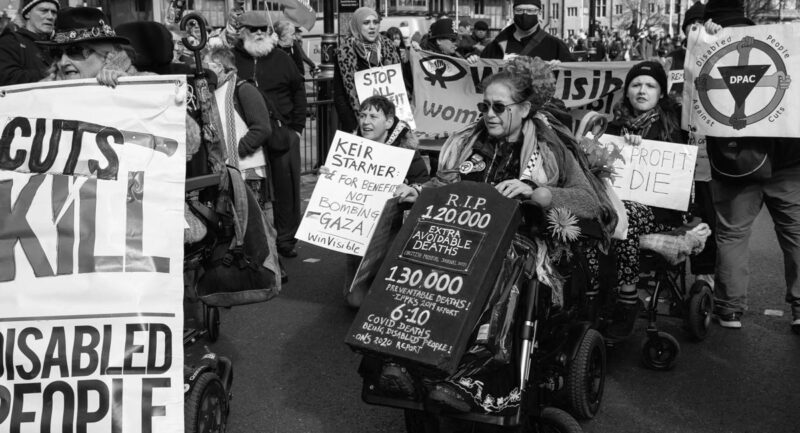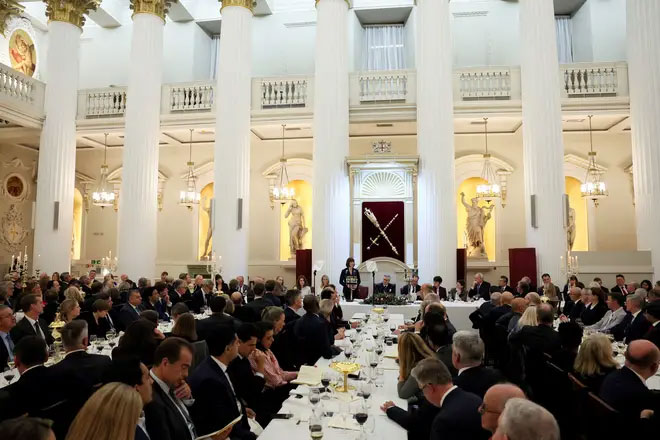Has the Labour Link broken beyond repair?
A special conference in London voted by 86 per cent to approve constitutional changes that will massively reduce the number of union affiliated members in the party and curtail their rights in favour of more privileges for MPs. Jeremy Dewar asks what will the changes mean?
Ed Miliband has achieved his “Clause Four Moment”, a rite of passage expected of every Labour leader, to gain the confidence of the capitalist class and the all-important billionaire media. Astonishingly, for all their bluff and bluster last autumn, union leaders voted by an even bigger margin, 96 per cent, to support the changes, with only the bakers’ union BFAWU objecting.
Until now, unions affiliated to the party have paid a fee to subscribe a portion of their membership at £3 a head. Each union decided on the size of that portion and, through its conferences and executive committees, also decided which policies, candidates and elected representatives to support inside the party.
While the union bureaucracies controlled this process very tightly for the most part, it represented, nevertheless, one of the few remaining things linking Labour to the organised working class.
Although it was theoretically possible for workers to debate politics and fight for changes within the party, in practice, affiliation meant that individual members of the union did not regard themselves as members of the party. They never really discussed party policy or voted on it. This was the prerogative of their union leaders. That is why it was so difficult for the general secretaries to drum up opposition to Miliband’s “reform”.
Now, even this tenuous collective link has been severed and replaced with a much reduced and as yet untried individual one for union members.
First, the decision over how many members to affiliate has been removed from the unions. Now, individual union members will have to agree to “opt in” to party membership. Everyone recognises that, after the last Labour government backed illegal wars, promoted privatisation and made cuts at local and national level, the number of affiliated members will fall dramatically as a result.
The GMB had already announced its decision to cut its affiliation fees from £1.2 million to £150,000 in anticipation of the change. Unite immediately followed suit, halving its contribution to £1.5 million.
Conservatives and Liberals alike, including those covert liberals who support and control the Labour Party, claim this is more democratic. Shouldn’t an individual make his or her own decision? This might have some semblance of sense if all individuals were equal and disposed of equal resources. In fact, a tiny number of people have vast riches, which they can turn into political influence
Billionaires and newspaper barons can and do manipulate party politics, often by merely hinting at where their donations may go. Some are brazen (and rich) enough to hedge their bets and donate to one, two, even three, parties. This represents their social weight, as owners of the proceeds of exploited labour, that is, capital.
Workers can only fight for their interests by combining, as a class. Over the generations, workers have done this through their unions. But they have also realised that strikes and negotiations with their own bosses are insufficient to protect all their interests as a class.
They have had to enter the field of politics to establish things like the right of all, including women, to vote, to equal pay, to end overt racial discrimination, to create social housing, the NHS, universal free education, the right to organise in unions, to win health and safety at work, the right to abortion and to end legal punishment of gays.
That is why, over a century ago, the unions, under pressure from their socialist wing, created the Labour Party. Generation after generation they collected workers’ hard earned money to pay for it. Without this, Labour could never have won majorities in parliament and local councils or achieved major social reforms and progressive political measures.
However, despite the famous Clause IV, which promised to establish common ownership of the means of production distribution and exchange, Labour has never been clearly and consistently committed to abolishing capitalism nor has it ever attempted to do so. In this sense, it has remained a bourgeois party, defending capitalism. But it has also been a working class reformist party, largely because of its collective ties to the unions.
Who benefits?
Miliband told the conference, “I don’t want to break our links with the working people and the trade unions” and insisted he wanted to “bring people back into politics”. Unite’s Len McCluskey said the reforms would “start to take us down the road of involving more trade unionists in the business of the party”.
In reality, the opposite is true.
First, affiliated members will not be expected to attend or listen to political debates in their unions. They will be atomised individuals, inevitably influenced more by the propaganda of the billionaire press and state-run broadcasting.
Second, they will not even be full members and will have no say in the selection of parliamentary candidates.
Third, the quota of MPs needed to back a leadership candidate has been increased from 12.5 per cent to 15 per cent; Miliband wanted it to be 20 per cent.
Fourth, any member of the public, whatever their political ideas, can become a “registered supporter” for £3 and take part in the election of the Leader of the Party. This dilution of membership will give even more influence to right wing media and “celebrities”.
The whole package will mean that union members, and trade unions as a whole, will be unable to play a role in selecting MPs, and MPs loyal to the unions will be increasingly unable to challenge for the leadership. As a result, the leadership will be even more immune from working class pressure than it has been since Blair began his attempt to undo what he called the “tragedy” of the formation of the Labour Party in 1900.
Finally, there is the question of money. Miliband boasted, “I took a risk, not least with the party finances”. That risk could be all smoke and mirrors given the rank cowardice of the union leaders and their willingness to hand over their members’ money in return for regular ritual public humiliation.
Union leaders, like McCluskey and the GMB’s Paul Kenny, may have reduced affiliation fees, but they have made it clear that huge one-off donations will fill any financial black hole.
Also, Labour’s disgraced, right wing have come running back. Lord Owen, one of the Gang of Four, who split the party in 1981 to form the SDLP, thereby ensuring Thatcher a second term, immediately donated £7,500. According to the New Statesman, Tony Blair is to make a “large donation” out of the £75 million he has acquired since leaving office seven years ago.
Our job now, as it has been for over a decade, is to get the unions to mobilise their members democratically to build a socialist alternative to Labour and to turn off the cash taps on Miliband and his middle class sponsors.










